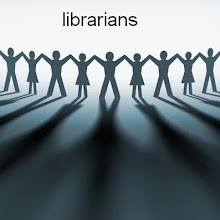Librarian in a Day! 9:15 - 17:00
Can anybody work a reference desk? No, but with a little training, a day's worth in fact, according to
The Chartered Insitute of Library and Information Professionals
--- ANYBODY can "undertake in-depth desk research."
Here's a description of that course:
Desk research skills
17 September 2008, London - U.K.
More and more library and information staff are being asked to carry out detailed desk research but have never had any formal training in the skills required to do the job well.
This course is designed for anybody in an information role who is required to undertake in-depth desk research and who would like to learn how to achieve the best results.
Benefits of attending
The day will cover:
-understanding the research brief
-research methodology
-identifying information sources
-researching and using specialist libraries
-key sources of information
-using the Internet for research
-presenting research findings
Who should attend?
Anybody in an information role who is required to undertake in-depth desk research
Programme
Registration & coffee 09.15
Start 09.45
Lunch 12.45
Close 17.00
Types of research
-Understanding the research brief
-Research aims and objectives
-Desk research strategy
-Finding and accessing specialist libraries
-Finding and using indexes and abstracting services
-Internet search strategies
-Internet resources for academic information
-Internet resources for official information
-Internet resources for business information
-Internet resources for special interest groups
-Internet resources for media information
-Evaluating Internet resources
-Presenting research findings

1 Comments:
Greetings All:
The original post reflects the inevitable result of the Chartered Institute of Library and Information Professionals continuing the well-established and quite mistaken program of marketing British librarians merely as "information professionals." In the "free" information "Age of Google" the public cannot be faulted for taking CILIP at its word and not valuing librarians for their vital roles in promoting lifelong learning and reading. With information "free" on the web, why should taxpayers support its provision as a public service supported by limited government revenues? Why should they even value the concept of librarian as information professional?
In Canada and the U.S. a substantial share of tax dollars is allocated to the support of education, now increasingly considered under the rubric of lifelong learning. So does it really make sense to ignore the librarian's historically vital role in the area?
At the risk of being seen as inappropriate, I will direct readers to the April 1, 2008 Library Journal and its "Lifecycle Librarianship" article.
http://www.libraryjournal.com/article/CA6542287.html
We are increasingly losing when we define ourselves as "information professionals/providers" so why not emphasize the aspects of the librarian's "job" that the public actually supports?
(With apologies for any typos...)
Bill Crowley, Ph.D.
Professor
Graduate School of Library and Infomation Science
Dominican University
River Forest, IL 60305
U.S.A.
Post a Comment
<< Home